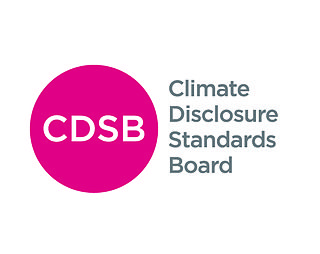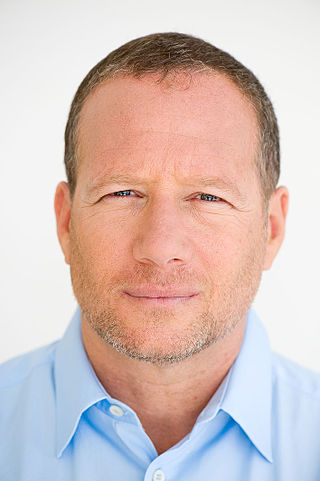
Corporate social responsibility (CSR) or corporate social impact is a form of international private business self-regulation which aims to contribute to societal goals of a philanthropic, activist, or charitable nature by engaging in, with, or supporting professional service volunteering through pro bono programs, community development, administering monetary grants to non-profit organizations for the public benefit, or to conduct ethically oriented business and investment practices. While once it was possible to describe CSR as an internal organizational policy or a corporate ethic strategy similar to what is now known today as Environmental, Social, Governance (ESG); that time has passed as various companies have pledged to go beyond that or have been mandated or incentivized by governments to have a better impact on the surrounding community. In addition, national and international standards, laws, and business models have been developed to facilitate and incentivize this phenomenon. Various organizations have used their authority to push it beyond individual or industry-wide initiatives. In contrast, it has been considered a form of corporate self-regulation for some time, over the last decade or so it has moved considerably from voluntary decisions at the level of individual organizations to mandatory schemes at regional, national, and international levels. Moreover, scholars and firms are using the term "creating shared value", an extension of corporate social responsibility, to explain ways of doing business in a socially responsible way while making profits.

The United Nations Global Compact is a non-binding United Nations pact to get businesses and firms worldwide to adopt sustainable and socially responsible policies, and to report on their implementation. The UN Global Compact is the world's largest corporate sustainability and corporate social responsibility initiative, with more than 20,000 corporate participants and other stakeholders in over 167 countries. The organization consists of a global agency, and local "networks" or agencies for each participating country. Under the Global Compact, companies are brought together with UN agencies, labour groups and civil society.
A social enterprise is an organization that applies commercial strategies to maximize improvements in financial, social and environmental well-being. This may include maximizing social impact alongside profits for co-owners.
A sustainable business, or a green business, is an enterprise which has a minimal negative impact or potentially a positive effect on the global or local environment, community, society, or economy—a business that attempts to meet the triple bottom line. They cluster under different groupings and the whole is sometimes referred to as "green capitalism". Often, sustainable businesses have progressive environmental and human rights policies. In general, a business is described as green if it matches the following four criteria:
- It incorporates principles of sustainability into each of its business decisions.
- It supplies environmentally friendly products or services that replace demand for nongreen products and/or services.
- It is greener than traditional competition.
- It has made an enduring commitment to environmental principles in its business operations.

Social entrepreneurship is an approach by individuals, groups, start-up companies or entrepreneurs, in which they develop, fund and implement solutions to social, cultural, or environmental issues. This concept may be applied to a wide range of organizations, which vary in size, aims, and beliefs. For-profit entrepreneurs typically measure performance using business metrics like profit, revenues and increases in stock prices. Social entrepreneurs, however, are either non-profits, or they blend for-profit goals with generating a positive "return to society". Therefore, they use different metrics. Social entrepreneurship typically attempts to further broad social, cultural and environmental goals often associated with the voluntary sector in areas such as poverty alleviation, health care and community development.

Women of Uganda Network (WOUGNET) also known as Women of Uganda Network Development Limited is Ugandan non-governmental organization that aids women and women's organisations in the use and access of information and communication technologies (ICTs) to share information and address issues their concerns such as gender norms, advocating for their rights and building communities and businesses through education.
Sustainopreneurship is an idea that emerged from the earlier concepts of social entrepreneurship and ecopreneurship, via sustainability entrepreneurship. The concept aims to use creative business organization in order to solve problems related to sustainability. With social and environmental sustainability as a strategic objective and purpose, sustainopreneurship aims to respect the boundaries set in order to maintain the life support systems in the process. In other words, it is a "business with a cause" – where ideally world problems are turned into business opportunities by deploying sustainability innovations.

The Nigerian Economic Summit Group (NESG) is a non-profit, non-partisan, private sector organisation with a mandate to promote and champion the reform of the Nigerian economy into a modern, globally competitive, sustainable, inclusive, open economy.
A sustainability organization is (1) an organized group of people that aims to advance sustainability and/or (2) those actions of organizing something sustainably. Unlike many business organizations, sustainability organizations are not limited to implementing sustainability strategies which provide them with economic and cultural benefits attained through environmental responsibility. For sustainability organizations, sustainability can also be an end in itself without further justifications.

The United Nations Environment Programme Finance Initiative is a partnership between the United Nations Environment Program (UNEP) and the global financial sector to catalyse action across the financial system to align economies with sustainable development. As the UN partner for the finance sector, they convene financial institutions on a voluntary basis to work together with them, and each other, to find practical solutions to overcome the many sustainability challenges facing the world today. UNEP FI does this by providing practical guidance and tools which support institutions in the finance sector to find ways to reshape their businesses and commit to targets for limiting greenhouse gas emissions, protecting nature, promoting a circular economy and supporting financial inclusion to address inequality. The solutions developed effectively form a blueprint for others in the finance sector to tackle similar challenges and evolve their businesses along a sustainable pathway. The creation and adoption of such a blueprint also informs policy makers concerned with sustainability issues about what would constitute appropriate regulation for the finance sector at large. Founded in 1992, UNEP FI was the first organisation to pioneer engagement with the finance sector around sustainability. The Finance Initiative was responsible for incubating the Principles for Responsible Investment and for the development and implementation of UNEP FI's Principles for Responsible Banking and Principles for Sustainable Insurance as well as the UN-convened net-zero alliances. Today, UNEP FI provides sustainability leadership to more than 400 financial institutions, with assets of well over $80 trillion headquartered around the world.

The Open Government Partnership (OGP) is a multilateral initiative aimed at securing commitments from national and sub-national governments to promote open government, combat corruption, and improve governance. The OGP is managed by a steering committee that includes representatives from both governments and civil society organizations.

The World Resources Forum (WRF) is a non-profit organisation for sharing knowledge about the economic, political, social and environmental implications of global resource use. WRF promotes resource productivity among researchers, policymakers, business, NGOs and the public. In addition to organizing international and regional conferences, the WRF Secretariat coordinates multistakeholder dialogue projects, amongst others the Sustainable Recycling Initiative (SRI) as well as the H2020 projects Towards a World Forum on Raw Materials (FORAM), and CEWASTE. The WRF contributes to other EC-projects and projects with the German development organisation GiZ, UNEP and UNIDO.

The Climate Disclosure Standards Board (CDSB) is a non-profit organization working to provide material information for investors and financial markets through the integration of climate change-related information into mainstream financial reporting. CDSB operates on the premise that investors and financial institutions can make better and informed decisions if companies are open, transparent and analyse the risks and opportunities associated with climate change-related information. To this end, CDSB acts as a forum for collaboration on how existing standards and practices can be used to link financial and climate change-related information using its Framework for reporting environmental information, natural capital and associated business impacts.

The Alliance for Financial Inclusion (AFI) is a policy leadership alliance owned and led by member central banks and financial regulatory in developing countries with the objective of advancing financial inclusion.

Ronny Douek is an Israeli businessman, investor, and philanthropist. He has founded multiple social entrepreneurial and non-profit ventures, including Zionism 2000, Sheatufim and Uru, and has served as chairman of the Israel Anti-Drug Authority. Douek lit a torch at formal torch-lighting ceremony on Mount Herzl in Jerusalem on Israel's 60th anniversary.
Africapitalism is the economic philosophy that the African private sector has the power to transform the continent through long-term investments, creating both economic prosperity and social wealth. A think tank tasked with studying the philosophy, the Africapitalism Institute, was formally launched during the 2014 World Economic Forum on Africa in Abuja, Nigeria in May of that year.

The Minister of Small Business Development is a Minister in the Cabinet of South Africa.

The Global Entrepreneurship Summit is an annual event organized by the federal government of the United States, in partnership with foreign government hosts. The summit originated from an event organized by the Obama Administration called the Presidential Summit on Entrepreneurship, which was held in April 2010 in Washington, D.C. It brought together entrepreneurs from the United States, Europe, Africa, the Middle East, South Asia, and Southeast Asia to discuss the importance of social and economic entrepreneurship, establish entrepreneurship as an important area of policy focus, and strengthen mutually beneficial relationships between entrepreneurs.

The Youth Café is a not-for profit pan-African youth organization that was founded in 2012 and works with young people in Africa and around the world to foster community resilience, propose innovative solutions, drive social progress, enable youth empowerment and inspire political change. The Youth Café is headquartered at Kitisuru Gardens, in Nairobi, Kenya.
Steward-ownership structures a company's ownership in a way that separates economic rights from voting rights. Steward-ownership is considered an alternative to shareholder primacy models. Steward-ownership can be implemented using different legal forms depending on the type of company and jurisdiction.













